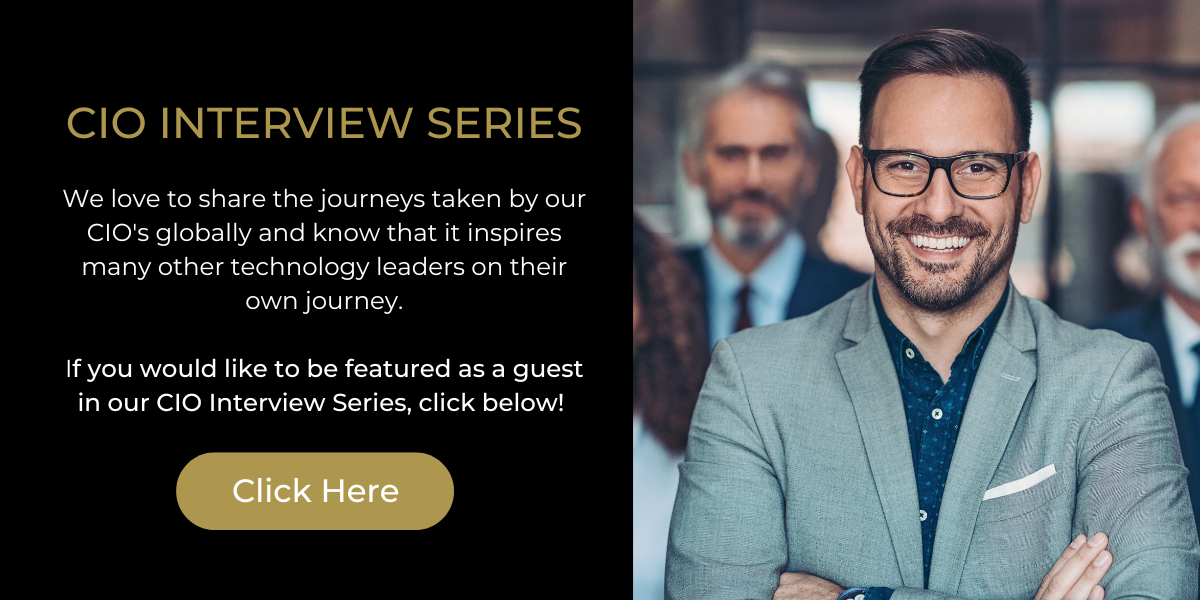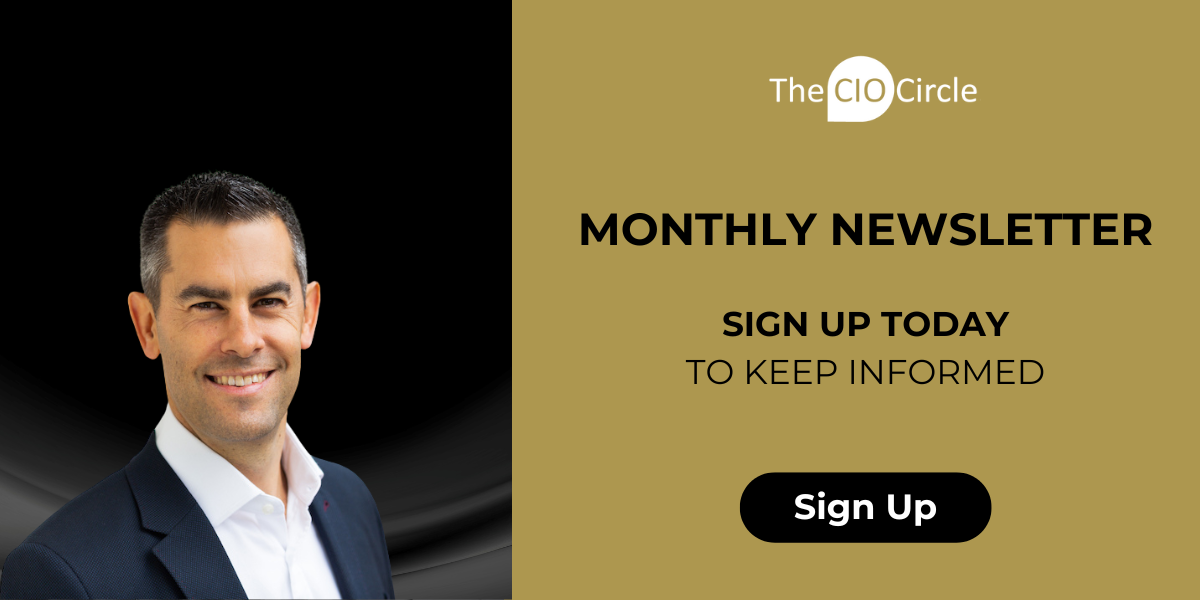CIO at SimplePractice
Can you please provide a little introduction about yourself
I was originally born and raised in the beautiful country of Macedonia, and now I'm fortunate to call sunny Southern California my home. I currently hold the Chief Information Officer role at SimplePractice, an innovative healthcare technology company based in Santa Monica. We're dedicated to simplifying the complexities of running a healthcare practice.
What has your journey to your position been like? What path have you taken?
My journey to my current position has been an exciting and transformative experience. I initially set out to become an engineer, specifically in the telecommunications industry. My passion was fueled by the desire to use technology as a powerful tool to make a positive impact and contribute to solving practical problems. As I progressed in my career, I discovered a deep passion for applying my skills, knowledge, and learned experiences in the world of technology, specifically in the healthcare space. I have always believed that technology can be used to make a positive impact on our lives. I was motivated by the potential to improve how clinicians and other healthcare professionals utilize technology to enhance their practice and provide better patient care. While I have served in various CIO roles before SimplePractice, this has been one of the most rewarding positions in my career.
Has it always been your vision to reach the position you’re at? Was your current role part of your vision to become a tech leader?
When I began my career, I never specifically envisioned being in the CIO role. However, my underlying aspiration has always been to ensure that my work carried significance – for myself, the customers I served, and the people I worked alongside. My vision was to provide value wherever possible without compromising my personal values. I have also been deeply committed to helping people around me grow personally and professionally. The desire to provide value, make a positive impact, and help others succeed has been a driving force in my career, shaping my approach to leadership and the choices I have made.
Although my current role as a tech leader might not have been a pre-defined part of my initial vision, it has evolved naturally from my commitment to making a positive impact and fostering growth within my teams. In this position, I can merge my passion for technology with my dedication to serving others, ultimately leading to a more meaningful and fulfilling career journey.
Have you had a role model or mentor that has helped you on your journey?
Throughout my journey, I've made it a point to learn something from everyone I interact with, as everyone has unique insights and experiences to share. My role model was my late grandfather, Tomislav Dimovski. Despite facing numerous challenges, he was determined to make a difference. He always used to say, "Listen to everyone. Even the people in the back of the room know something you might not." I've carried this wisdom throughout my journey, striving to absorb all the information I can. He taught me that “defining a finite solution to a problem prevents an opportunity to grow further.” A significant role model in my professional career has been Jim Alland. He opened up a world of opportunities for me by coaching, mentoring, trusting, and guiding me through the industry. Jim has been an inspiration in how to approach problems, align my values with the organizational mission, and drive value for our customers. His unwavering support and mentorship have played a pivotal role in my leadership growth. I am incredibly grateful for the influence of both my grandfather and Jim Alland, as they have shaped me into the leader I am today. Their guidance has taught me the importance of being open to learning from others and supporting those around me on their journeys.
How do you see the role of the technology leader evolving over the next 5 years?
Over the next five years, the role of the technology leader will evolve significantly in response to the rapidly changing landscape of technology and the increasing complexity of global challenges. I foresee this evolution taking place on five parallel tracks.
The first track is cross-functional collaboration. As technology continues to permeate every aspect of business and society, technology leaders must collaborate more closely with other departments and functions. This will require a broader understanding of various disciplines and a focus on fostering strong relationships and open communication across the organization.
The second track is an emphasis on innovation and agility. Technology leaders must drive innovation within their organizations, keeping pace with emerging technologies and trends. This will involve fostering a culture of continuous learning, experimentation, and adaptability, ensuring that their teams remain agile and responsive to changing needs and opportunities.
The third track is the focus on using ethical and responsible technology. With the growing awareness of the social and environmental implications of technology, tech leaders will need to prioritize ethical and responsible practices. This includes considering the potential consequences of technology deployment and ensuring that tech initiatives align with the organization's values and contribute to a sustainable future.
The technology leader will have to focus on cybersecurity and data privacy significantly. As cyber threats evolve and data privacy regulations become more stringent, technology leaders must proactively address these challenges. This will involve developing and implementing robust security strategies, promoting a culture of security awareness, and ensuring compliance with relevant regulations.
Finally, the technology leader will need to focus on people-centric leadership. The role of a technology leader will increasingly require a strong focus on the human aspect of technology. This means nurturing talent, fostering diversity and inclusion, and supporting the personal and professional growth of team members. Empathetic, humble, and visionary leaders will be instrumental in creating supportive environments that empower individuals to thrive and contribute to the organization's success.
What skills do you think leaders of the future will need in order to thrive?
How do you keep current with new skills, technologies and personal development?
To keep myself updated, I prioritize learning by dedicating time to it daily. I actively engage in research that benefits not only me but also other leaders in the industry, and I'm always eager to explore new ideas and perspectives. Attending conferences and industry events is another valuable way for me to stay informed about emerging trends and best practices. These gatherings provide a platform for networking, learning from experts, and discovering innovative solutions to address challenges within the field. In addition to these activities, I subscribe to various newsletters, blogs, and podcasts to stay informed about the latest developments in technology and leadership. I also participate in online courses, workshops, and webinars to further enhance my knowledge and skills. I believe that collaboration and knowledge-sharing are integral components of personal growth. I regularly engage in discussions with my peers and colleagues, exchanging ideas and insights, which helps broaden my understanding and keeps me up-to-date with the latest advancements.
What do you see as the next leap in technology that will impact your business or industry in particular?
AI and ML, if used appropriately, have the potential to revolutionize healthcare by transforming the way we diagnose, treat, and manage diseases, as well as by optimizing clinical workflows and administrative tasks. For example, AI-driven tools can enhance diagnostic accuracy by analyzing complex medical imaging data, identifying patterns in electronic health records to predict patient outcomes, and supporting personalized treatment plans. AI can also assist in streamlining administrative tasks, such as appointment scheduling and billing, thereby improving overall efficiency and allowing healthcare professionals to focus on patient care.
In addition to AI, the healthcare industry increasingly recognizes the need for interconnectedness and standardized solutions across different verticals. As the volume of data generated in healthcare continues to grow, seamless data exchange and interoperability between systems become paramount. By implementing standardized solutions and adopting standard data formats, the industry can ensure better care coordination, reduce the risk of errors, and facilitate more effective collaboration between healthcare providers, patients, and other stakeholders.
"Future leaders should lead by example, invest in building strong relationships, and always strive for excellence in all that they do"
If you were mentoring a leader of the future, what advice or guidance would you give to help them on their way?
If I were to mentor a future leader, I would emphasize the importance of embracing humility, empathy, adaptability, and resilience, as these qualities foster a supportive and dynamic work environment. I would encourage lifelong learning and continuous growth, both personally and professionally, while prioritizing ethical decision-making to ensure the long-term well-being of the team, organization, and the wider community. Future leaders should cultivate a clear vision and strategic thinking to guide their team effectively and promote collaboration and inclusiveness by valuing diverse perspectives and open communication. Finally, future leaders should lead by example, invest in building strong relationships, and always strive for excellence in all that they do. By adhering to these principles, future leaders can develop the necessary skills and mindset to overcome challenges and make a lasting, positive impact on their customers, teams, and organizations.
Is there anything in particular that you would still like to achieve in your career or what is the next step on your journey?
I still aspire to make a significant improvement in the way our healthcare industry utilizes technology. My goal is to bridge the gap between innovative technology and healthcare practices, allowing us to enhance patient care and streamline processes. I aim to work on developing and implementing solutions that rely on data and qualitative insights, ensuring that the technology we adopt truly addresses the needs of patients and healthcare providers alike.
As part of my ongoing journey, I am determined to contribute to the transformation of the healthcare landscape by championing interoperability, data-driven decision-making, and ethical technology adoption. By doing so, I hope to make a lasting, positive impact on patient outcomes and create a more efficient, accessible, and patient-centric healthcare ecosystem. This pursuit will continue to drive my career, fueling my passion for innovation and inspiring me to remain at the forefront of technological advancements in the healthcare space.
If you could change one thing in the world, what would it be?
If I could change one thing in the world, it would be to ensure equal access to quality healthcare for all, regardless of their background, location, or socioeconomic status. I believe that access to quality healthcare is a fundamental human right, and by providing these opportunities, we can empower individuals to lead healthier, more fulfilling lives and enable communities to thrive. Addressing this challenge would involve harnessing technology and innovative solutions to bridge existing gaps and promote greater equity in healthcare. This includes leveraging telehealth to reach underserved populations, developing scalable and cost-effective healthcare solutions, and fostering collaboration between governments, organizations, and communities to create sustainable, long-term change. Together we can create a more inclusive, compassionate, and prosperous world for generations to come.
A big thank you to Martin Ignatovski from SimplePractice for sharing his journey to date.
If you would like to gain more perspective from Tech Leaders and CIOs you can read some of our other interviews here.
August 16, 2023


